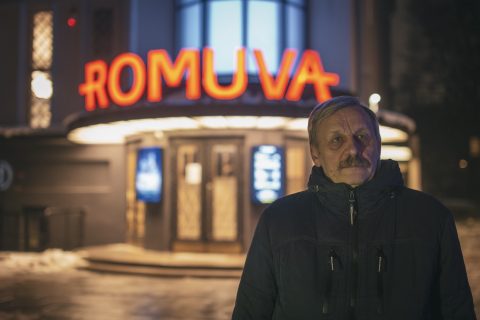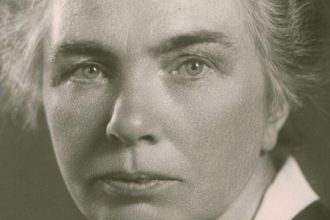The first inhabitants of North America prepared all kinds of food from acorns. They collected and peeled fresh acorns, ground them well, put them in a tightly woven basket and kept them for a couple of days. From this flour they baked bread, cooked soups and prepared sweets.
There were similar recipes in Lithuania as well. Authentic memoirs mention that the women of Žaliakalnis and the entire city of Kaunas used acorn – the product that came about during the period of food shortage – which they roasted and then made the drink. The social project Owl Coffee initiated by three Kaunas residents – Jonas Oškinis, Jūratė Miliutienė and Monika Briedienė – serves Lithuanian acorn coffee during its events.
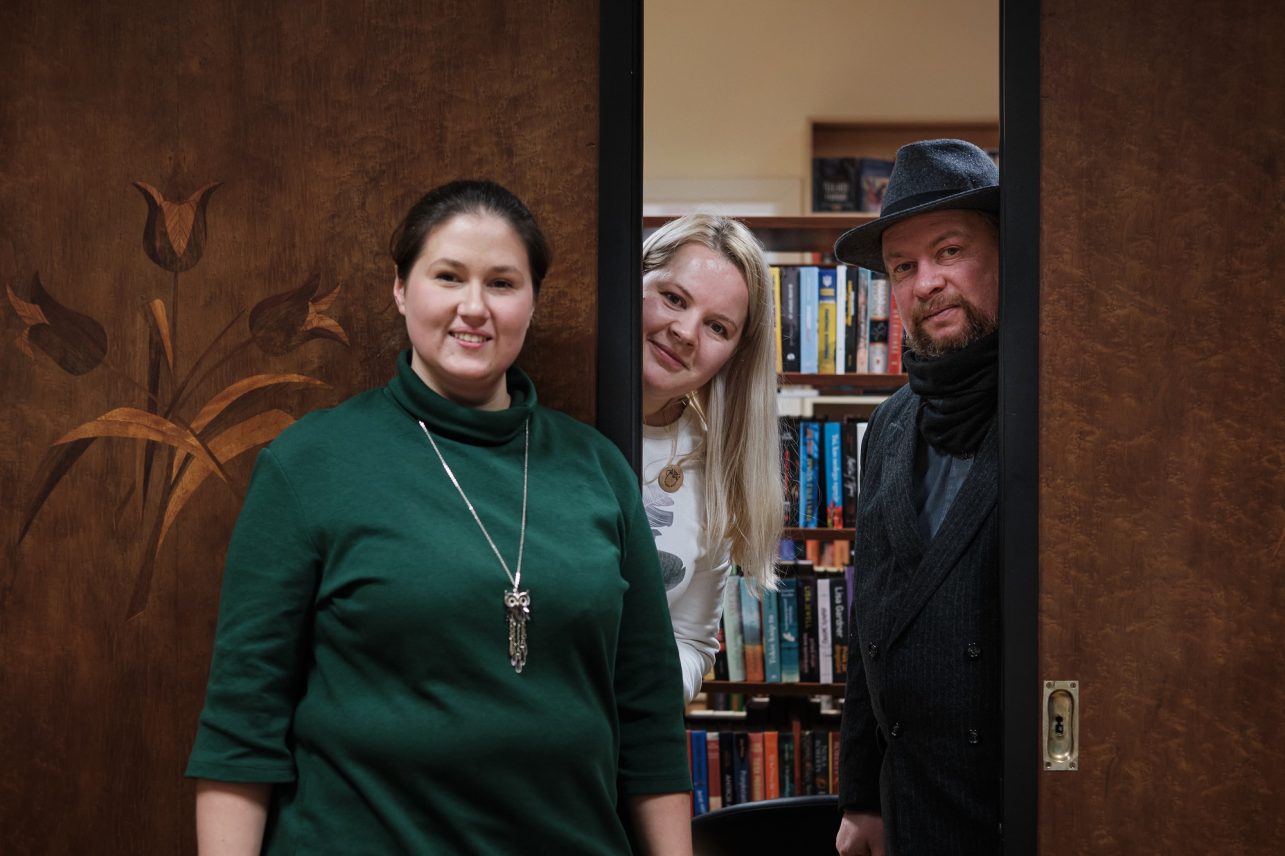
When we met at the Z. Kuzmickis branch of the Vincas Kudirka Library on Raseinių Street, where the advent workshop was held by the Owl Coffee, one of the main initiators of this project – Jūratė Miliutienė – said that the idea of the project was born after she moved to Žaliakalnis, “I became interested in the history of this area and I saw that Jonas Oškinis’ tours are taking place from time to time. That is where we got acquainted. After that we kept saying that something is missing here in Žaliakalnis because this part of town does not attract enough tourists. After some time, I heard about Philip Tulba’s consulting on social business. We needed three people, so I suggested Jonas and Monika to join me and work together. Monika and I met at the kindergarten in Žaliakalnis, where both our children attended, and it turned out that we had the same needs.”
Today, the Owl Coffee community of acorn coffee table consists of Žaliakalnis residents, who are interested in their rich history and who, inspired by the atmosphere of the interwar period, sip on the acorn coffee and share news of cultural life, and sometimes go on excursions, visit various museums and exhibitions. According to Jonas, the tour guide, this type of initiative is necessary for the city and the residents of the district, “Various activities are quick to emerge in Žaliakalnis but they tend to quickly stop. Therefore, we would really like our community’s slogan to be about connecting people from different sectors. For example, the Sinagoga Studio space has recently been renovated in the area, where concerts of various genres of music are taking place more and more often. It would be very nice to cooperate with the studio. We want this kind of initiatives to find us and help that community grow – later we will certainly find activities for everyone.”
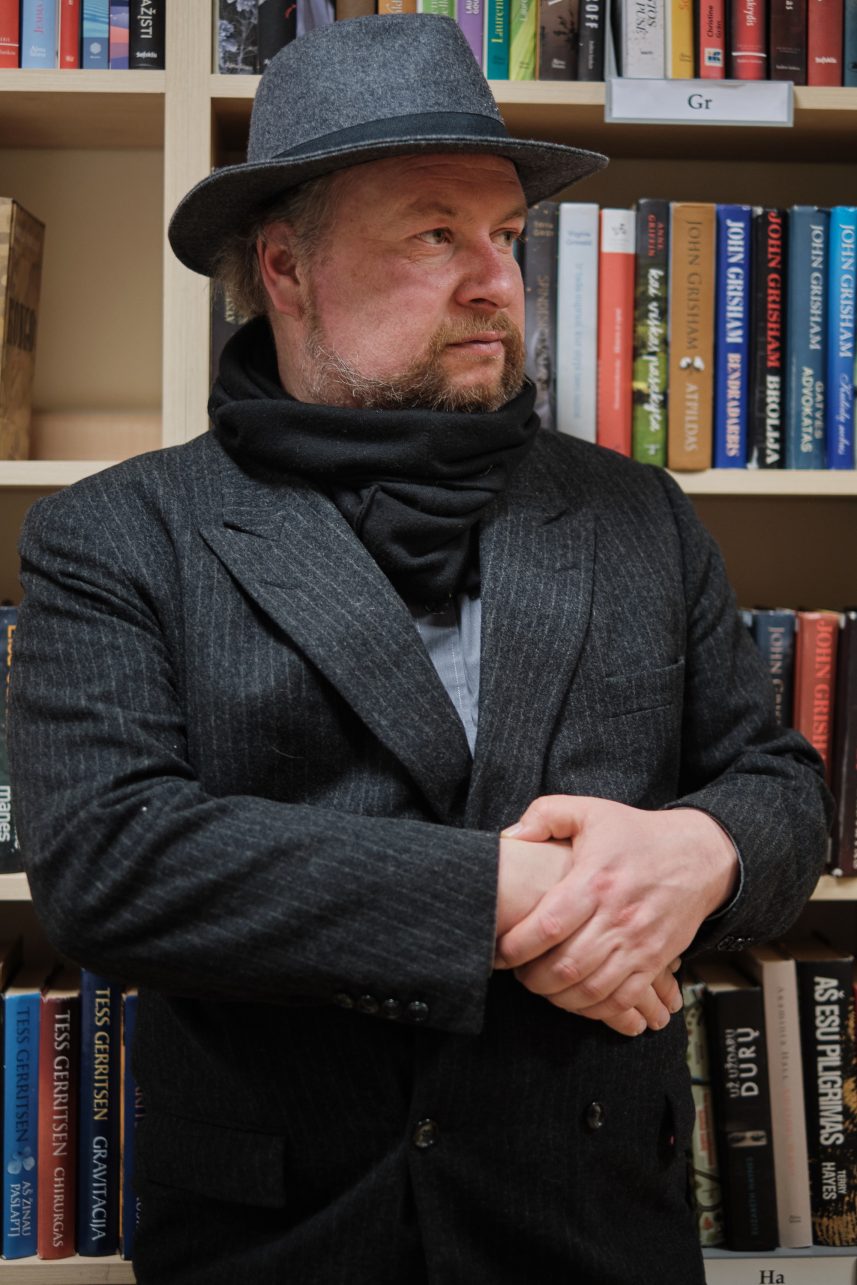
Jonas is a guide who has been regularly leading tours at Owl Coffee events for the past few years. He comes from Žaliakalnis, where he also lives today. He has been observing this district from up close since childhood, seeing how everything has changed and yet remained the same. In any case, there has always been a lack of new communal impetus in Žaliakalnis. Monika, who lives in one of the greenest areas of Kaunas center agrees, “I’m glad that Fluxus Labas founded a lot of communities that will probably remain active after the end of the Kaunas – European Capital of Culture 2022 program. Such an initiative was not established in Žaliakalnis, so we appeared. Now, a young person often walks the streets without knowing much about them. There are some memorial plaques, but this does not say much to anyone. And in the past, everyone knew what each plaque meant, people were neighbors, friends. Everyone nurtured Žaliakalnis together. Perhaps one of our main goals is to act so that people wouldn’t forget the history of the district, would get to know their neighbors and wouldn’t be afraid to say hello.”
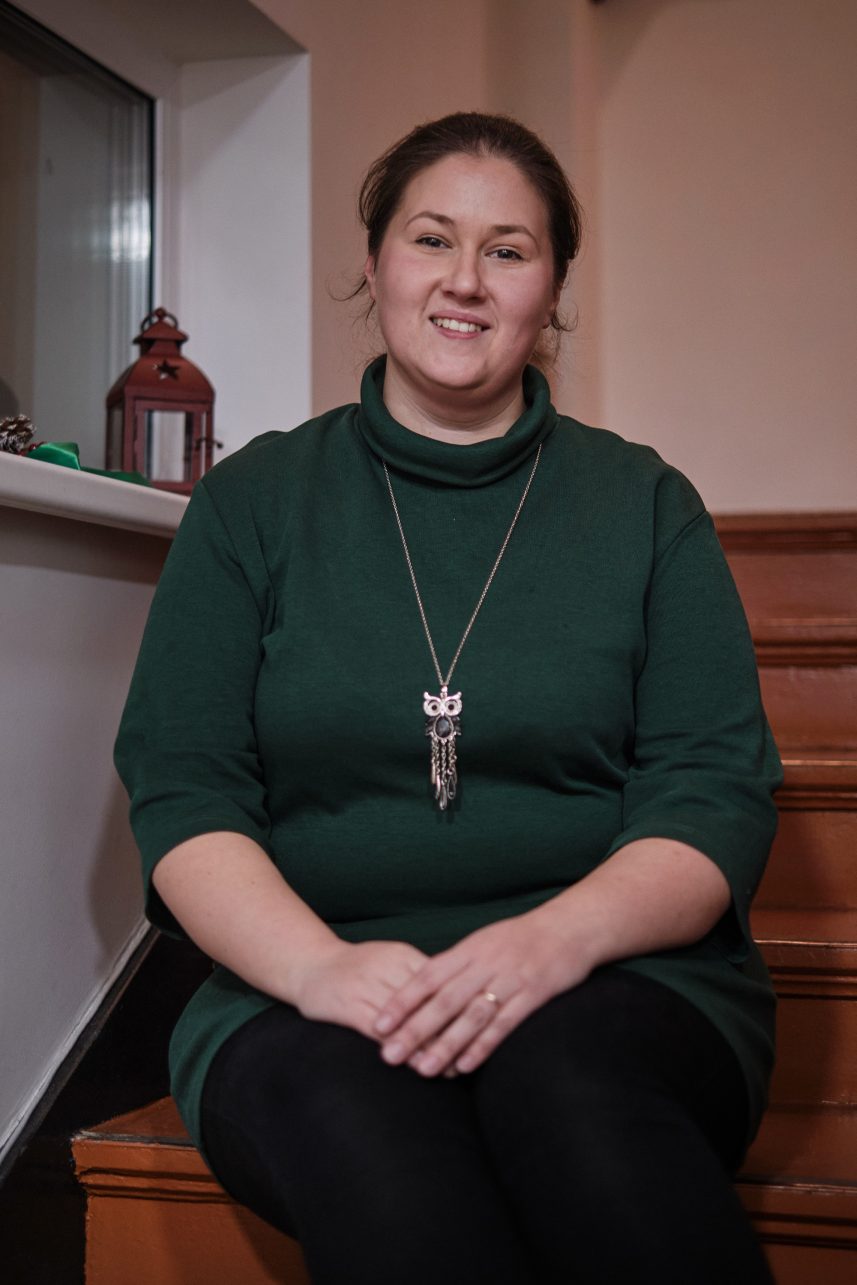
The Owl Coffee tours held in Žaliakalnis on the last Wednesday of every month are led by guides, but, as the interviewees said, the participants also contribute with stories. The guide provides the essential information: when a particular house was built, who lived where, and people also keep adding their own stories, because someone’s grandmother lived in one house, a childhood friend in another, of perhaps it was them, who spent their days playing there. “Everyone shares their personal memories, and this makes the tours more interesting,” Jūratė adds.
Kaunas Country Public Library is being renovated in Žaliakalnis and the interwar period cinema Daina waits for renovation works as well. The organizers mentioned that in the long run they very much hope to become community catalysts, who will announce cultural news and at the same time bring the district together. “The most important thing would be that despite this great change which is taking place, the traditions would be preserved. If such an important building for Žaliakalnis – Daina cinema – will be restored, it will be full of culture, content and people again, just like during the interwar period and the Soviet era. I also hope that they will be selling coffee – finally I will not have to think about where to go, will not have to run to the city center,” Jonas notes.
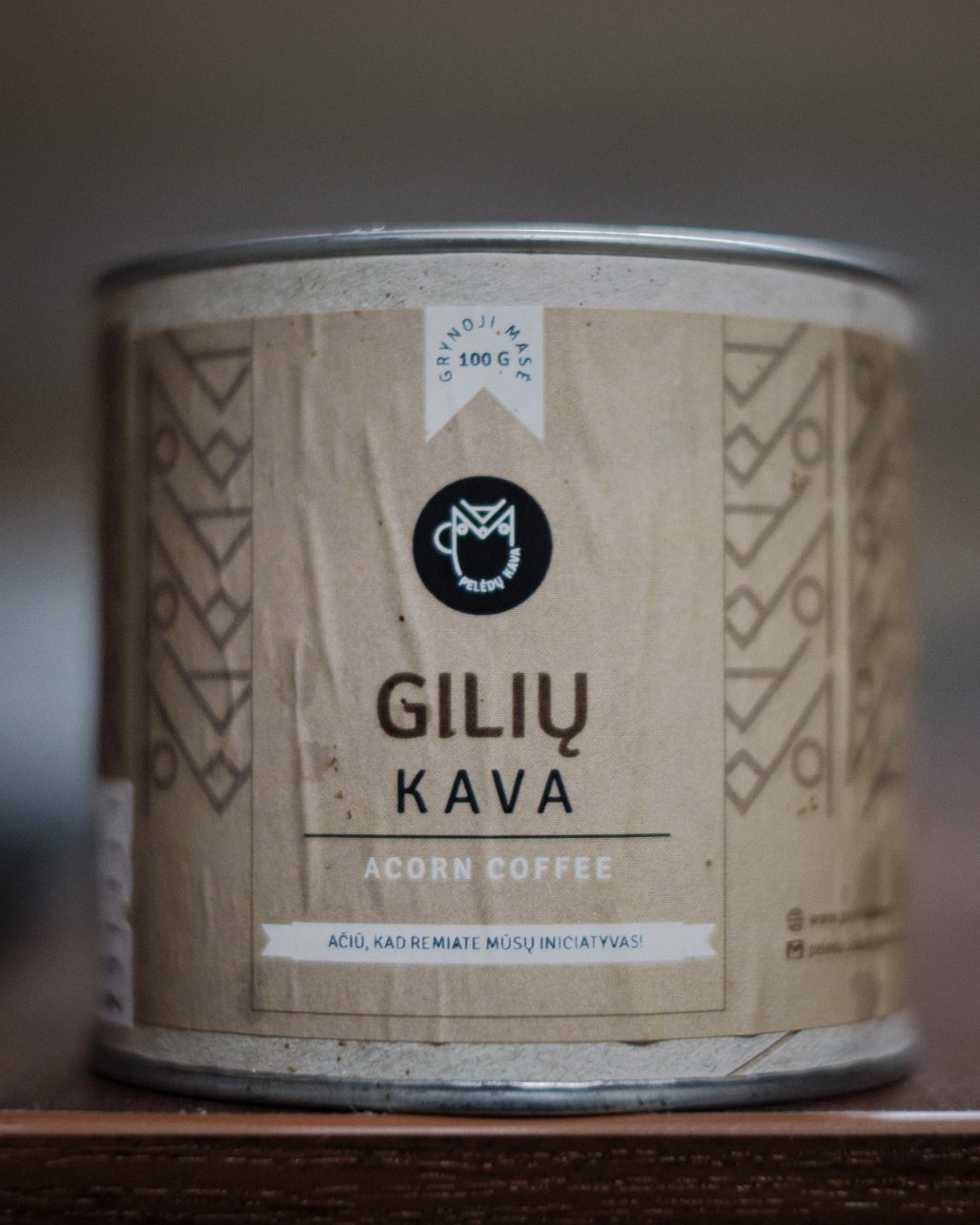
Coffee is a sacred thing for the Owl Coffee community. Its name and every event are related to this. Behind the name lie the symbols of Žaliakalnis: Owl Hill and oak park. “There were talks about every district having its own symbol or souvenir. At the very beginning, we thought about peony tea, but Jonas mentioned that in the past they used to collect acorns in oak park to make acorn coffee, so that’s where the search ended. We were looking for a beautiful link and found it during the conversation,” Jūratė recalls.
In the past, there were many tea parties held by Kaunas ladies. Before the war, women would gather at five o’clock to discuss the city’s news and drink coffee. Now, this initiative invites you to chat while drinking decaffeinated acorn coffee. “Oaks and acorns have always been here, so we started serving coffee, which truly connects our community, in museums, tours, or workshops,” Jonas says.
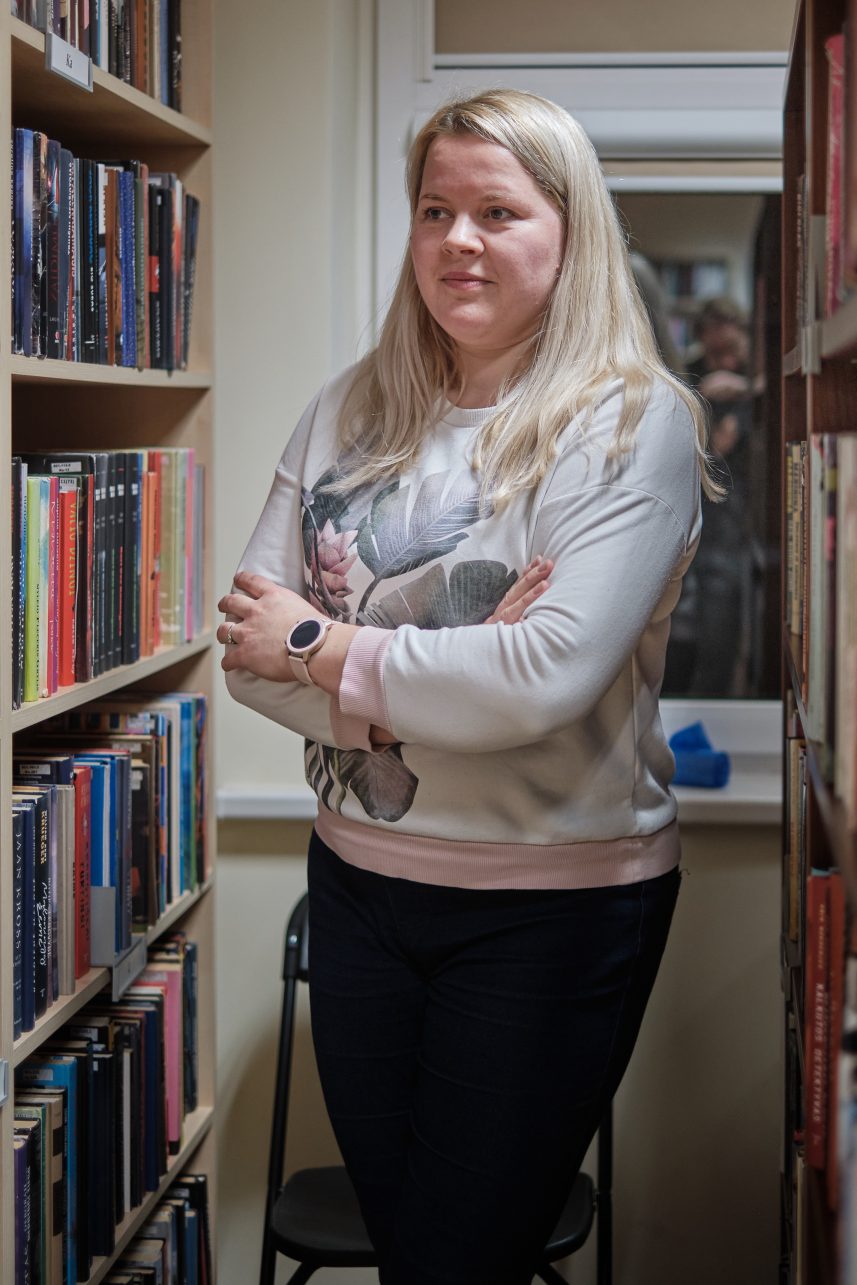
As the initiative continues for several years, the interviewees notice that many of the same people come to the events, so the community is truly being built, continuity is emerging, and the essential goal – talking about Žaliakalnis and protecting the uniqueness of this area – is being implemented. Jūratė said that she is for Žaliakalnis, no matter what happens. “Everything is truly connected here. There were Dutch women who came to the ConTempo festival and asked us to tell them what is worth visiting in Kaunas. We took the guests around Žaliakalnis, told them about our organization, and received a nice comment that we seem truly communal. And the strangest thing is that none of the locals saw that connection the way the Dutch women did. This is because nothing is meaningless or unnecessary with us,” Jūratė concludes.

